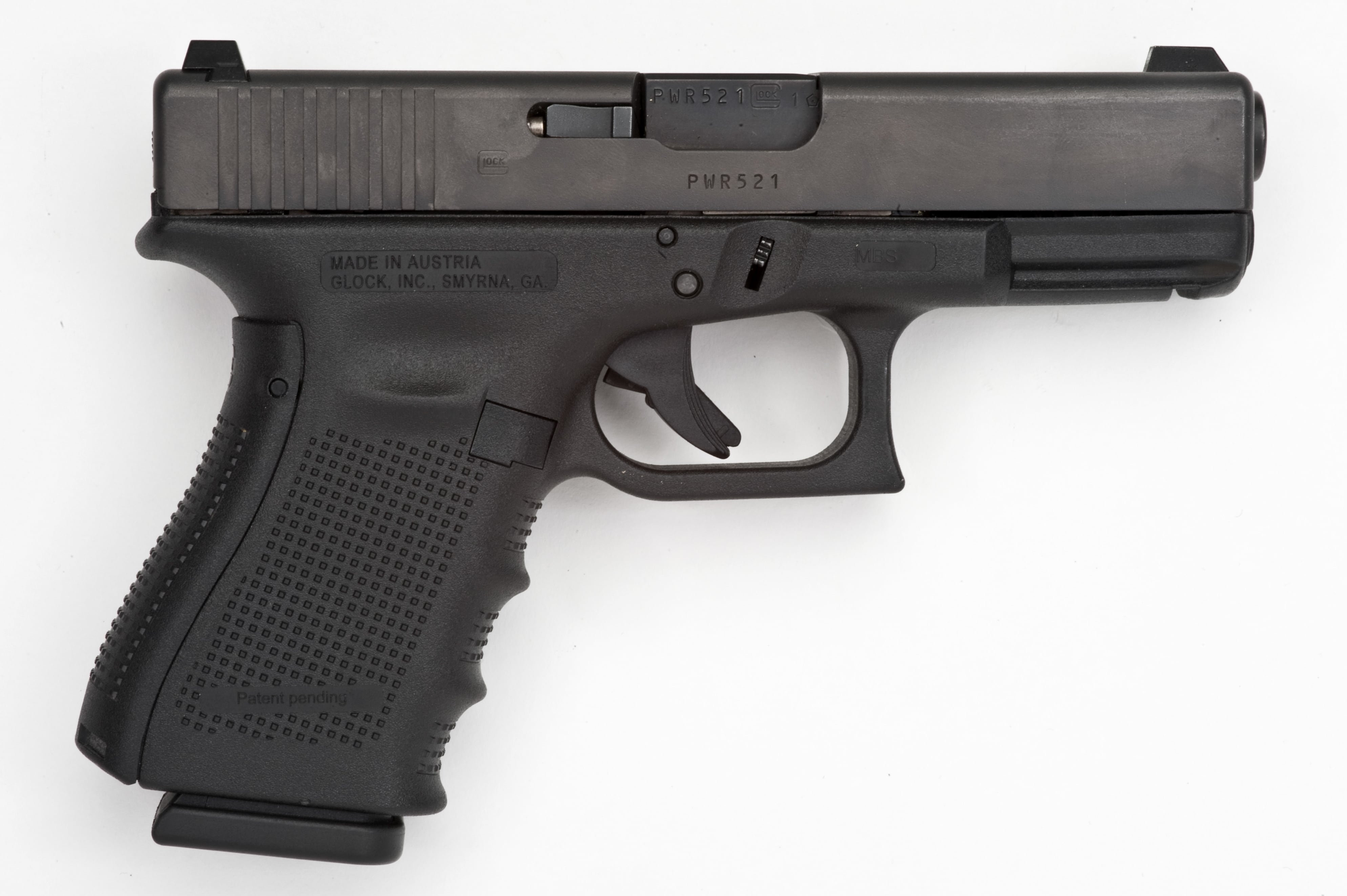For Marine special operators, the never-ending debate over whether the 9mm or .45-caliber round is the more powerful bullet has been settled.
Previously, the classic .45-caliber Colt 1911 was one of three pistols that Raiders were allowed to carry, but now the 9mm Glock 19 is the only pistol that Marine special operators can take into battle, said Maj. Nick Mannweiler, a spokesman for Marine Corps Forces Special Operations Command.
"We put our money behind the 9mm round fired by an extremely well-trained marksman carrying a Glock 19," Mannweiler told Marine Corps Times.
Since last year, MARSOC has purchased and fielded 1,654 Glock 19s because Raiders needed a reliable secondary weapon "that could be used for both a concealed carry profile and a low-visibility profile," and having one approved pistol for all special operators saves money, he said.
"Based on lessons learned in our operations, we also took into consideration how well a round could penetrate objects of varying densities and in different environmental conditions," Mannweiler said. "We concluded that a 9mm round suited our needs."
One of the most contentious issues that humanity has wrestled with is whether the .45-caliber round is superior to the 9mm cartridges. Bona fide experts as well as armchair generals have thrown their hat into the ring.

A Gen4 9mm Glock G19.
Photo Credit: Rob Curtis/Staff, Gannett Government Media
The arguments boil down to this: The .45-caliber round is the bigger bullet, so it has the "knock down power" to neutralize any adversary with one shot; while pistols that fire 9mm rounds are generally more accurate and can carry more bullets. Where a bullet hits the human body is also a major factor on whether it inflicts a mortal wound.
Even though the .45-caliber cartridge has more propellant, the 9mm round usually has more penetrating power because the smaller round faces less air resistance on its nose as it files through the air, said Neil Clapperton, a firearms and forensic expert with the Rhode Island State Crime Laboratory.
The .45-caliber round is also more expensive than its 9mm counterpart, Clapperton said. For all of these reasons, the FBI is moving from Smith & Wesson .40-caliber pistols back to 9mm handguns, he said.
The official trade association for the firearms industry has refused to take sides in the 9mm vs. .45-caliber debate.
"Millions of words have been spent comparing the advantages/disadvantages of 9 mm vs. .45 cal.," said Mike Bazinet, a spokesman for the National Shooting Sports Foundation. "You can find these discussions aplenty on the web. Tests have various inputs and constraints. So, even 'hard data' is defined by test parameters."
Another issue for the ages is whether troops should use weapons lubricant sparingly or generously in hot, sandy and dusty environments. Despite decades of troops' experiences fighting in desert climes, fire arms experts remain unable to arrive at a consensus on lube.




